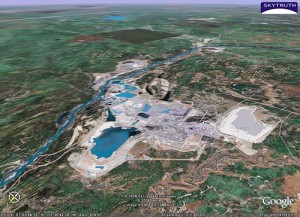On Monday, Dr. Laurie Geller, director of the National Academy of Sciences’ new blue-ribbon climate change report, briefed the Citizens’ Climate Lobby’s National Conference, kicking off CCL’s Washington lobby week. Part I of NAS’s report stresses the strong evidence and broad scientific consensus that Earth’s surface is warming due to human-caused fossil fuel burning. NAS recommends further research on managing impacts on ecosystems, food production, public health and climate policy.
Part II, “Limiting the Magnitude of Future Climate Change” calls for immediate, urgent action; its top recommendation is to “Adopt an economy-wide carbon pricing system.” It also urges additional clean energy R&D, research into how behavior and technology interact and incentives for low greenhouse gas energy technologies. Part III, on adaptation, suggests responses to the inevitable consequences of climate change already in motion. Recommendations include: “develop hot weather early warning systems” as Philadelphia has done, and “Alaska: Retreat from the Coast” beginning the process of relocation from areas where thawing and erosion are rendering present settlements untenable.
Lester Brown, whose book “Plan B 4.0” is an inspiring blueprint for a sustainable, low-carbon future, also addressed the CCL conference. Brown reminded listeners that the Japanese attack on Pearl Harbor sparked President Roosevelt to call on industrialists to convert automobile and steel manufacturing into wartime production, leading to victory in WWII. Brown sketched a similarly broad transformation away from fossil fuels and toward efficiency and renewables that is now urgently needed to avert climate disaster — a far more profound threat to our security than Japanese invasion was in 1942. Brown stressed that a gradually and predictably-rising carbon tax is a key policy needed to drive the energy transformation required for climate stability essential to human civilization.



